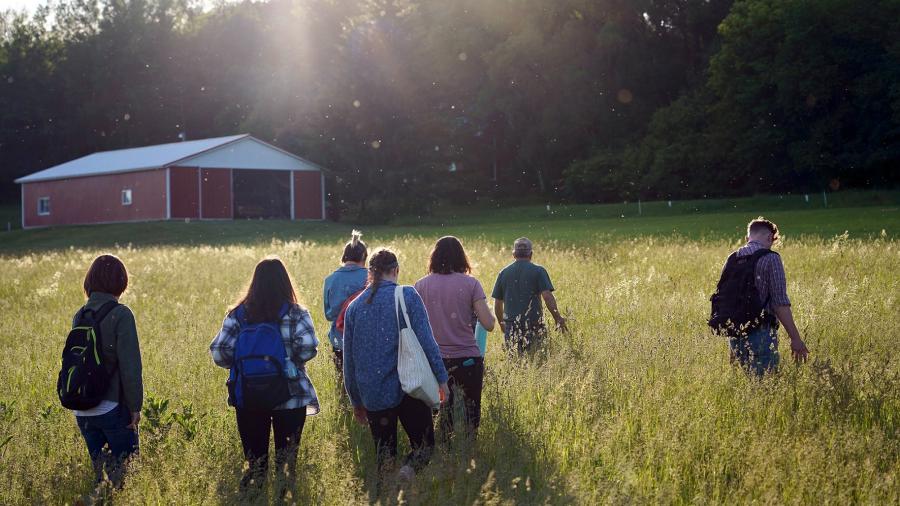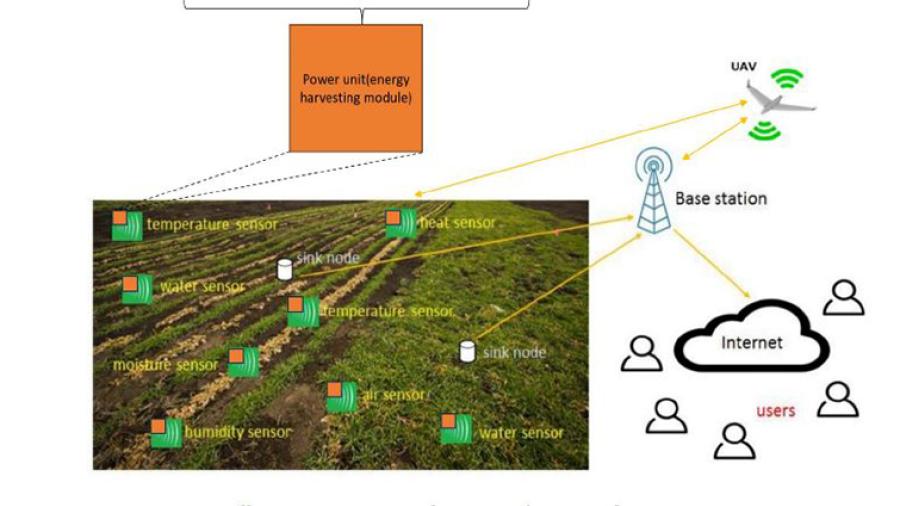Social science/engineering project, funded by Universities of Wisconsin, aims to boost profitability of state’s small farms
In a perfect world, farmers could wave a magic wand over their fields and get bigger and better crops, save money and energy, and help the environment.
Professors at UW-Stout are developing a low-cost, wireless sensor network to monitor farm fields that isn’t a magic wand — but comes close. Using research, engineering and the power of modern technology, including the Internet of Things, it has the potential to make small farms more profitable.
The social science/engineering project has received a two-year, $175,000 Innovation Grant from the Universities of Wisconsin. President Jay O. Rothman announced the grant Thursday, Jan. 18.
“We are very excited to see this proposal’s future development and how its innovations will positively affect the Universities of Wisconsin, Wisconsin citizens and communities, and the state’s economic growth,” Rothman said.
UW-Stout’s project, A HumanCentered Collaborative Approach to Designing an Energy-Efficient Wireless Sensor, will be a network of eight sensors that monitor temperature, humidity, wind, soil moisture, heat and more. The sensors feed data to a central unit in the ground, a sink node, which relays it to a satellite tower and the Internet.
Farmers would then evaluate the information to support decision-making regarding their crops.
Research has indicated that precision agriculture can significantly enhance farming efficiency, increasing crop yield and quality by at least 15%, reduce the cost of water and pumping it by 30% and boost profitability by up to $100 per acre.
Farmers have been slow to adopt similar technology because of cost and maintenance issues. But this network will be battery-operated — no wires to bury. Plus, the sensors will harvest various types of ambient energy, such as geothermal, to reduce the need for battery replacement.
“This represents a fundamental shift towards support for sustainable and efficient farming practices in a way that is available to smaller farms while supporting them and, as a result, rural communities,” said Assistant Professor Yuan Xing, engineering.
UW-Stout has four undergraduate programs and one in Graduate Studies in engineering, part of the Robert F. Cervenka School of Engineering, and an engineering technology degree.
During the first year of the grant, social science professors and applied social science students will collect data from farmers and organizations in the agriculture industry regarding issues they need addressed and how such a system could help them. Engineering faculty will design a prototype. Then, the prototype will be tested to get farmers’ feedback.
“The human-centered design process will help ensure the technologies meet the needs of small farmers and fit into their lives and farming practices, making them more likely to be adopted,” Lee said.
During the second year of the grant, engineering faculty will develop a final design and test it at several area farms. Social science faculty and students will gather more feedback for potential design improvements. A user-friendly control system also will be designed.
Finally, seminars will be held in select counties around the state to explain the system and offer farmers free trial use of the device.
A prototype of the sensor network has potential to be produced and marketed for a larger audience, Xing and Lee said, possibly through WiSys, a state nonprofit that supports UW research, innovation and entrepreneurship.
The project is an outgrowth of UW-Stout’s CROPS — the emerging Center for Rural Opportunity, Prosperity and Sustainability. CROPS is piloting ongoing research about issues facing rural communities, including farm consolidation, the loss of population and small businesses, rural poverty and environmental issues related to conventional agriculture.
Professors have received initial support from the Dunn County Land and Water Conservation Division; Joe Ailts of Ailts Agronomy, a crop consultant serving farmers in northwest Wisconsin; and a local farmer.
Two other grants were approved from among 17 proposals submitted by UW campuses. The grants run through 2025. As the three projects develop, one will be selected for an additional three years of funding totaling $400,000. Recipients will also be invited to a future UW Board of Regents meeting to present their winning proposal and its projected outcomes.
In 2022, UW-Stout mathematics professors received a $36,000 grant from the Freshwater Collaborative of Wisconsin for a similar project, Crop Per Drop in Sandy Soils.
Written by
Link to original story:


